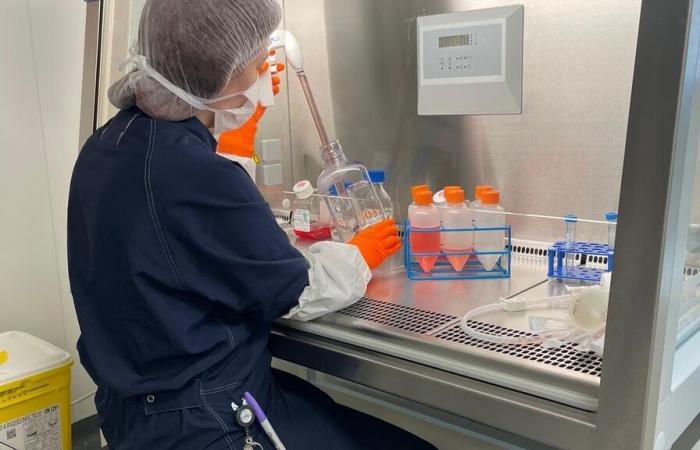
Accelerating the production of stem cells from the umbilical cord is the project of the young start-up from the Grand Est, StemInov, which has joined forces with the Nancy CHRU for this purpose. StemInov has just received support from France 2030, via the call for projects “Innovations in biotherapies and bioproduction”, with funding of 5.2 million euros.
Although the use of this type of stem cell remains relatively unknown to the general public, “more than 400 clinical trials worldwide are evaluating treatments based on these stem cells”, recalls Julie Hutin, CEO of StemInov. It must be said that these cells have particularly interesting properties: anti-inflammatory, antibacterial and promoting the regeneration of damaged tissues. Enough to open up perspectives on numerous pathologies.
“The objective is to provide the patient with the benefit of these stem cells”explains Julie Hutin who immediately specifies: “How you produce your cells is crucial; we must master the entire manufacturing process which is done from human tissue, to avoid having variabilities in clinical trials”.
Optimized 3D bioproduction
Production is generally done like a classic cell culture, in two dimensions, on plates. A technique with insufficient performance which explodes costs and makes availability to the greatest number of people hypothetical. StemInov has, for its part, developed a 3D bioproduction technology, by adhesion to microcarriers, in the form of microbeads. “Today, we have managed to overcome this barrier to the production scale, we have carried out an initial proof of concept on a 1.5 litre bioreactor and we are moving on to 5 litres”she specifies. Public funding from France 2030 will allow the biotech to upgrade its platform to GMP grade, the standards required to produce a treatment intended for humans. “For the moment, we are in GMP-like conditions”indicates Julie Hutin. “We still have to carry out and validate the first part of the operation, the cutting of the umbilical cords under insulators, to switch to GMP”she explains. The quality control part will also be carried out by the Nancy University Hospital, with which StemInov has established a partnership.
Stem cells from the umbilical cord.
A drug candidate like POC
And to validate its approach, the biotech wants to move forward on a first drug candidate, evaluated in phase I/IIa on severe pneumonia. A way of “show that we are capable of producing, ensuring logistics and sending cells to the patient’s bedside”she explains.
For this, StemInov is planning to raise funds to carry out this trial. Clinical evaluation must open new horizons. If successful, laboratories could be interested in leveraging StemInov’s technological platform on their own products. “Especially since, once a production has been selected, it cannot be changed during clinical development, under penalty of potentially having to repeat trials”recalls Julie Hutin.
For now, the manager is planning a phase IIa trial as far as possible, which would require a second round of fundraising to be able to be carried out. Its production platform is hosted within the EASE structure, in Strasbourg. The collection of umbilical cords is made possible thanks to a partnership with the cell therapy unit and tissue bank of the Nancy CHRU, which collects them from maternity wards and transmits them to StemInov, after an anonymization and quality control step. . With funding from France 2030, StemInov will be able to work on another scale-up. With three employees, the young biotech plans to recruit to increase its workforce to around fifteen people, including around ten dedicated to production.





